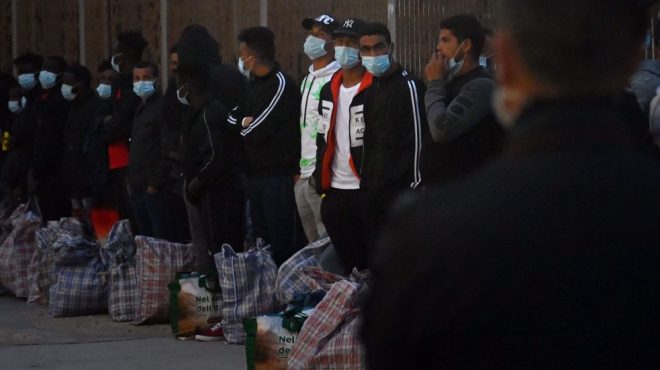The United Nations says the current search and rescue (SAR) operations in the Mediterranean Sea fail to prioritize the migrants’ lives and safety, calling on Libya and the European Union to urgently reform their practices.
The comments came after the United Nations Human Rights Office (OHCHR) released a report on Wednesday on the protection of people who attempt to cross from Africa to Europe, saying current SAR policies and practices in the central Mediterranean enable violations and abuses against migrants more so than ending them.
The 37-page report – entitled “Lethal Disregard: Search and rescue and the protection of migrants in the central Mediterranean Sea” – found that the lack of migrant protection “is not a tragic anomaly, but rather a consequence of concrete policy decisions and practices by the Libyan authorities, European Union member states and institutions, and other actors.”
The report further said the EU has not only cut back on its own official SAR operations but individual governments have prevented humanitarian organizations from conducting rescues.
Private vessels increasingly avoid helping migrants in distress due to stand-offs over disembarkation, the report added, calling the rising death rates in the central Mediterranean Sea a “human tragedy on a massive scale”.
The report, covering the period from January 2019 to December 2020 and based on interviews with 80 migrants, also said some interceptions by Libyan authorities had endangered migrants. Some boats were rammed or shot at, causing boats to capsize or migrants to jump overboard.
It also concluded that Libya is not a safe place for the disembarkation of migrants rescued at sea, adding that when migrants are returned to the North African country, they often face a range of serious human rights violations, exploitation and abuses.
This came after migrants told the UN rights office that there have been “pushbacks at sea” where migrant vessels have been returned from international waters to Libya with the help of European helicopters.
In response to the report, the UN High Commissioner for Human Rights Michelle Bachelet urged Tripoli as well as Brussels to overhaul their search and rescue policies in order to ensure compliance with international law.
“The real tragedy is that so much of the suffering and death along the central Mediterranean route is preventable,” she said, adding that “Every year, people drown because help comes too late, or never comes at all.”
The top UN rights official further said “No-one should feel compelled to risk their lives, or those of their families, on unseaworthy boats in search of safety and dignity.”
“But the answer cannot be simply preventing departures from Libya or making the journeys more desperate and dangerous.”
“Until there are sufficient safe, accessible and regular migration channels, people will continue to try to cross the central Mediterranean, no matter what the dangers or consequences,” Bachelet said.
Thousands of desperate refugees and migrants including many from Africa undertake long, dangerous journeys via Libya to Europe each year, often embarking on small, inflatable boats in search of a better life.
UN agencies are reporting a sharp rise in deaths across the Central Mediterranean among refugees and migrants fleeing conflict and persecution. So far this year at least 632 people have died on that route.
 Alghadeer TV Alghadeer TV
Alghadeer TV Alghadeer TV

